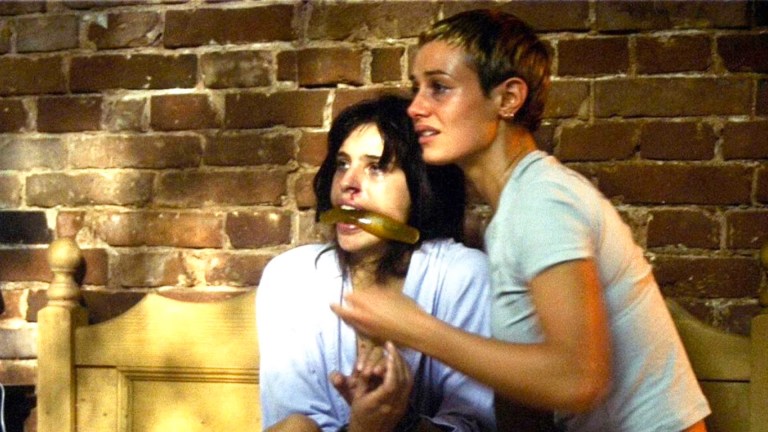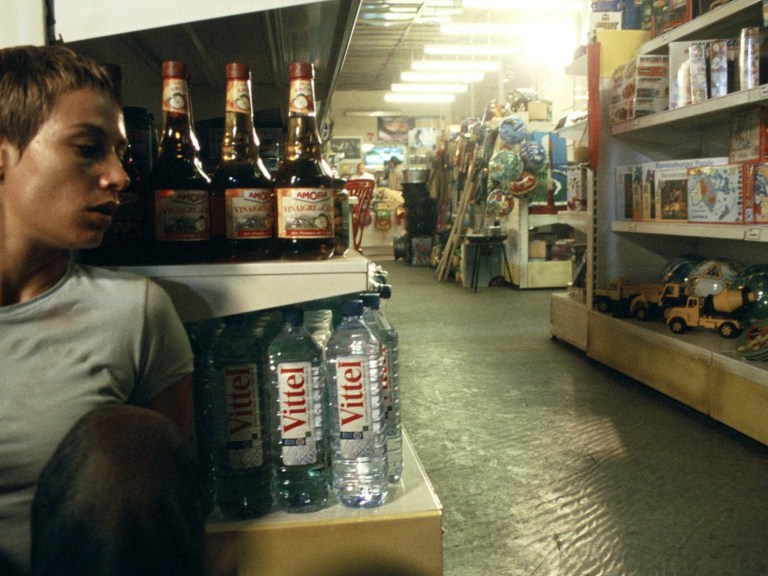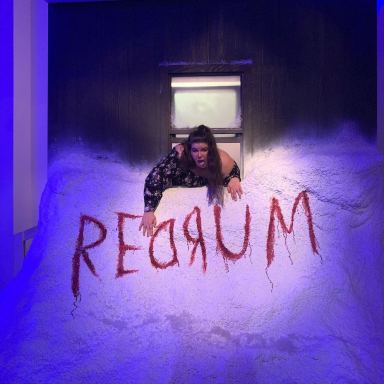You’ll Either Love or Hate the Big Twist in This Controversial French Horror Movie
“I won’t let anyone come between us any more.”

The most controversial film on our scariest horror movies of all time list is one that almost everyone agrees is excellent for 90% of its runtime. However, viewers are split on the ending. Some say it’s a shocking twist-ending that makes the movie even more creepy and enjoyable. Others find it clumsy and say it creates plot holes that ruin the movie.
That movie is High Tension (2003), also known as Haute Tension or Switchblade Romance. Part of the New French Extremity movement, High Tension is very bloody. The movie needed to be cut down upon release in the U.S. to avoid an NC-17 rating. To give you an idea of how graphic High Tension is, the first death shown involves a man being decapitated by forcing his head through the spindles of a staircase and using a heavy piece of furniture to decapitate him. This is arguably the scariest home invasion scene in cinema (though 2007’s Inside and 2008’s The Strangers are contenders for that title).

High Tension is about two friends: Marie and Alex. On a break from school, they drive to Alex’s remote farmhouse to spend a weekend with her parents. On the first night, the idyllic trip is interrupted by a brutal home invasion that results in Alex’s kidnapping. Marie follows in pursuit, desperate to rescue Alex.
What is the controversial ending of High Tension? (Obviously there are spoilers ahead, stop reading now if you haven’t seen High Tension and don’t want to be spoiled). After a final confrontation in which Marie impales the killer with a barbed-wire-wrapped fence post (which is depicted in some of the movie’s posters), she is finally able to rescue Alex. However, Alex appears to be terrified of Marie. At this point, it is revealed that Marie is in love with Alex and completely deranged. The movie has been told from the vantage point of Marie’s delusions. There is no killer. Marie is the killer. The film ends with Marie being institutionalized.

Does the ending of High Tension create an unfixable plot hole? The argument is that many things in the movie no longer make sense once the ending is revealed. For instance, how did chains suddenly appear in Alex’s home when we see the kidnapper has put her in chains in her bedroom? What truck did the “killer” escape in with Alex bound inthe back? What was actually happening in those scenes where Marie confronted the killer? In my opinion, these are not plot holes. The story is clearly being told from the perspective of Marie. Marie is insane. Therefore the story will not make sense to non-insane people.
However, if you think the twist ruins the movie, you aren’t alone. Roger Ebert gave High Tension a lowly one-star review, highlighting the implausibility of the plot given the twist-ending. He says parts of the movie are “physically, logically and dramatically impossible.” Which is kind of the point. Marie is insane. Of course a story told from her perspective is not logical.
This does beg the question of whether a movie about an insane person can be enjoyable to watch, since the norms of storytelling are out the window. Any movie can tack on an “actually they were insane” ending to justify a lapse in believability or plain old sloppy storytelling. If too many movies were made with a similar twist to High Tension, it would quickly get old. But at the time the movie was released, this wasn’t an overdone trope, which is what made it shocking and novel. In this specific instance, it works.
Of course, film is subjective and any reaction you have to High Tension is valid. Some takes might be more reasonable or well-argued, but our personal interactions with art are whatever we want them to be. If you haven’t seen High Tension (or if you want to rewatch), the movie is currently streaming free on Tubi.
Further reading:
